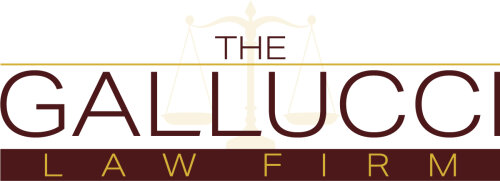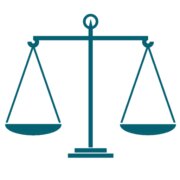Best Drunk Driving Lawyers in New York
Share your needs with us, get contacted by law firms.
Free. Takes 2 min.
Or refine your search by selecting a city:
List of the best lawyers in New York, United States
About Drunk Driving Law in New York, United States
Drunk driving, legally referred to as Driving While Intoxicated (DWI), is a serious offense in New York. The state enforces strict laws to prevent impaired driving and safeguard all road users. Penalties for drunk driving in New York can include license suspension, fines, mandatory alcohol education programs, and even jail time. These laws apply to anyone operating a motor vehicle under the influence of alcohol or drugs, with specific legal blood alcohol concentration (BAC) limits set by state law.
Why You May Need a Lawyer
There are various situations where legal representation in a drunk driving case is crucial. Facing a DWI charge is daunting and can have lasting effects on your life. A lawyer can help if you are dealing with any of the following:
- Your BAC was at or above the legal limit and you were arrested
- You have previous DWI or DUI convictions
- You refused to take a chemical test when stopped
- Your arrest involved an accident, injury, or property damage
- You face potential felony charges due to aggravated circumstances
- You want to challenge the legality of your stop or arrest
- You need help understanding your rights and options
- You seek to minimize penalties or explore reduced charges
An experienced lawyer can explain the process, represent you in court, and help secure the best possible outcome for your case.
Local Laws Overview
New York has some of the strictest drunk driving laws in the country. Here are key aspects of these laws that you should know:
- The legal BAC limit for most drivers is 0.08 percent. Commercial drivers are subject to a lower BAC limit of 0.04 percent. Drivers under 21 can face penalties with a BAC as low as 0.02 percent under the Zero Tolerance Law.
- DWI applies when a driver has a BAC of 0.08 percent or higher, while DWAI (Driving While Ability Impaired) applies at a BAC between 0.05 and 0.07 percent.
- Aggravated DWI is charged if BAC is 0.18 percent or higher, leading to harsher penalties.
- Refusing a chemical test can result in a license suspension for at least one year and substantial fines, even if you are not convicted of DWI in criminal court.
- For repeat offenders, consequences become more severe, including mandatory ignition interlock devices, longer license revocations, and possible felony charges.
- All DWI convictions carry permanent records with the Department of Motor Vehicles (DMV), and may impact employment, insurance, and travel.
Frequently Asked Questions
What is the legal blood alcohol content (BAC) limit for drivers in New York?
For most drivers, the legal BAC limit is 0.08 percent. Commercial drivers have a 0.04 percent limit, and drivers under 21 can be penalized with a BAC of 0.02 percent or above.
What happens if I refuse to take a breathalyzer or chemical test?
Refusing to take a chemical test in New York results in an automatic license suspension for at least one year, along with fines, regardless of the outcome of your criminal case.
Can I go to jail for a first-time DWI offense?
Yes, while jail time is not mandatory for a first-time DWI, it is possible. Penalties may also include fines, license suspension, and mandatory education or treatment programs.
What is the difference between DWI and DWAI?
DWI stands for Driving While Intoxicated, which usually involves a BAC of 0.08 percent or higher. DWAI means Driving While Ability Impaired, and it applies when your BAC is between 0.05 percent and 0.07 percent or your ability is impaired by drugs.
Will a DWI conviction remain on my record forever?
Yes, in New York, a DWI conviction will remain on your criminal record permanently and can also affect your driving history with the DMV.
Can I get a DWI expunged or sealed in New York?
New York does not allow for the expungement or sealing of DWI convictions except in very limited circumstances, such as when the case is dismissed or the individual is acquitted.
What are the penalties for aggravated DWI?
Aggravated DWI, which involves a BAC of 0.18 percent or higher, carries heavier fines, longer license revocations, and a higher likelihood of jail time or probation compared to a standard DWI.
Can I drive after being charged with DWI?
Often, your license will be suspended at arraignment, but you may be eligible for a conditional license that allows limited driving, such as to work or school, during the case and any subsequent suspension period.
What is the ignition interlock device requirement?
If convicted of DWI, the court will usually require an ignition interlock device on any vehicle you own or operate for at least six months, even for first-time offenders.
Do I need a lawyer for a DWI charge in New York?
It is highly recommended to consult with a lawyer if you are facing a DWI charge in New York. The legal system is complex, and an attorney can help protect your rights and guide you through the process.
Additional Resources
If you need more information or assistance, these resources can be very helpful:
- New York State Department of Motor Vehicles (DMV) - for license information, penalties, and DWI education programs
- Office of Alcoholism and Substance Abuse Services (OASAS) - for assessment and treatment resources
- New York State Bar Association - for finding qualified defense attorneys
- Local legal aid or public defender’s office - for those who cannot afford private counsel
- National Highway Traffic Safety Administration (NHTSA) - for general information on impaired driving laws and prevention
Next Steps
If you are facing a drunk driving charge in New York, it is important to act quickly. Here is how you can proceed:
- Gather any documents related to your arrest, such as tickets, court notices, and test results
- Write down the details of your arrest, including where you were stopped and what happened
- Contact a qualified DWI defense attorney who practices in New York and has experience with cases similar to yours
- Attend all required court dates and follow any temporary license requirements or restrictions
- If ordered, enroll in and attend any required alcohol education or assessment programs
Taking prompt action and seeking professional legal guidance can make a significant difference in the outcome of your case.
Lawzana helps you find the best lawyers and law firms in New York through a curated and pre-screened list of qualified legal professionals. Our platform offers rankings and detailed profiles of attorneys and law firms, allowing you to compare based on practice areas, including Drunk Driving, experience, and client feedback.
Each profile includes a description of the firm's areas of practice, client reviews, team members and partners, year of establishment, spoken languages, office locations, contact information, social media presence, and any published articles or resources. Most firms on our platform speak English and are experienced in both local and international legal matters.
Get a quote from top-rated law firms in New York, United States — quickly, securely, and without unnecessary hassle.
Disclaimer:
The information provided on this page is for general informational purposes only and does not constitute legal advice. While we strive to ensure the accuracy and relevance of the content, legal information may change over time, and interpretations of the law can vary. You should always consult with a qualified legal professional for advice specific to your situation.
We disclaim all liability for actions taken or not taken based on the content of this page. If you believe any information is incorrect or outdated, please contact us, and we will review and update it where appropriate.
Browse drunk driving law firms by city in New York
Refine your search by selecting a city.

















